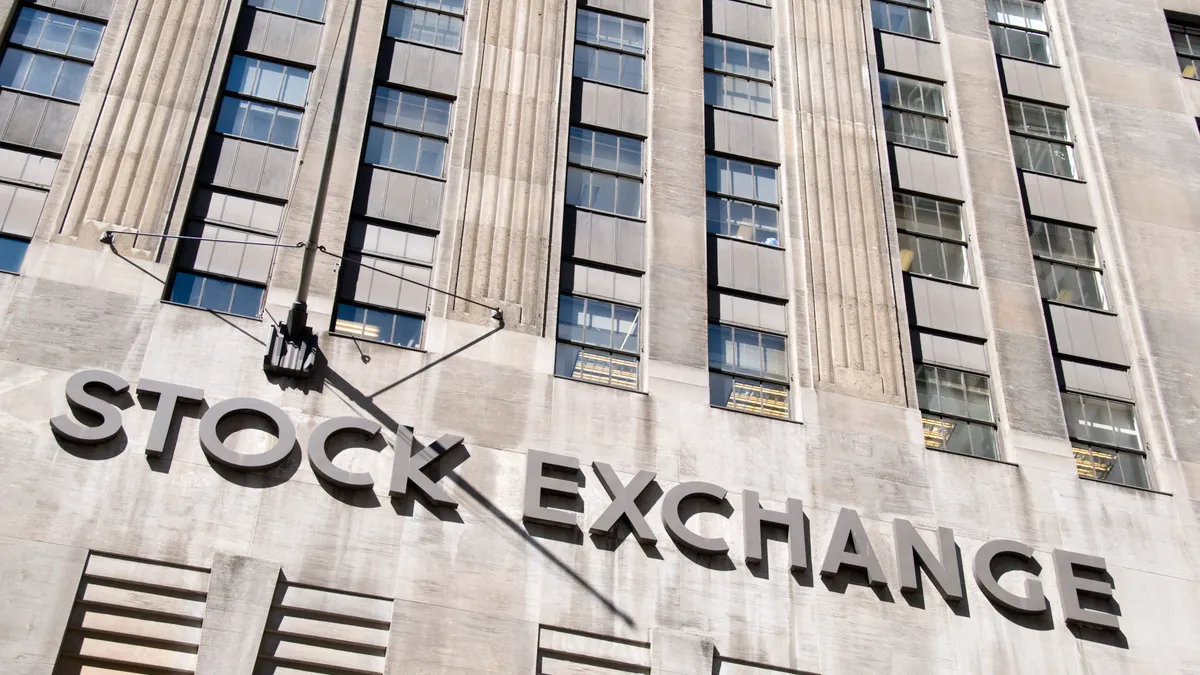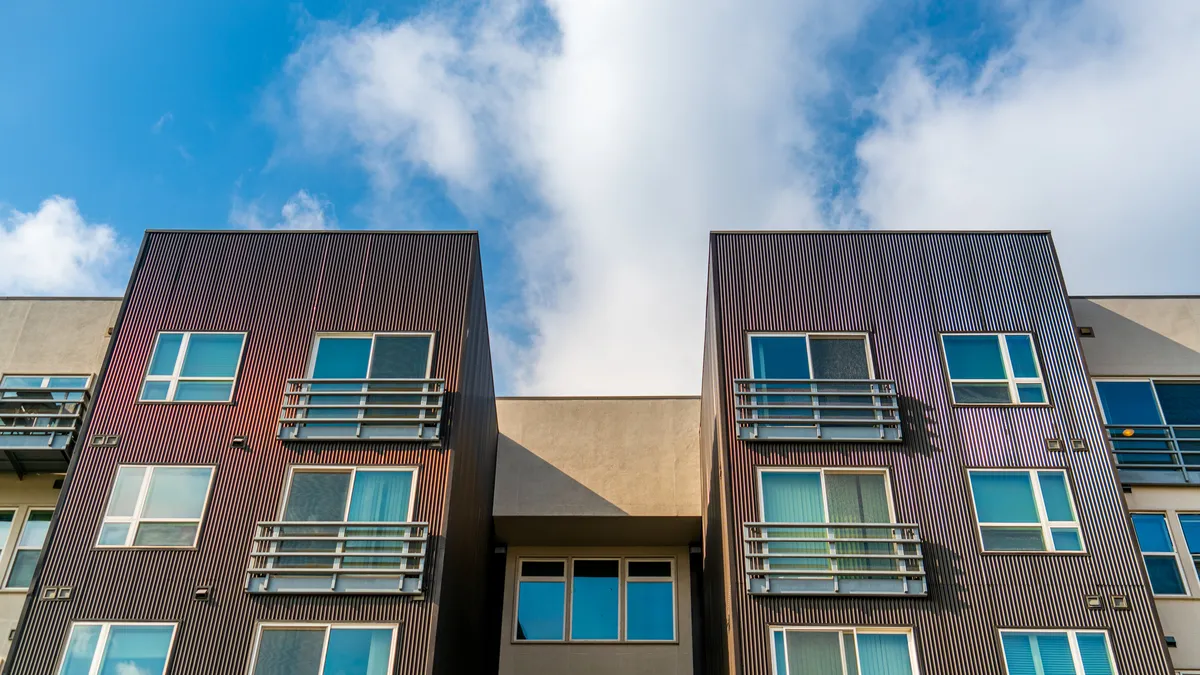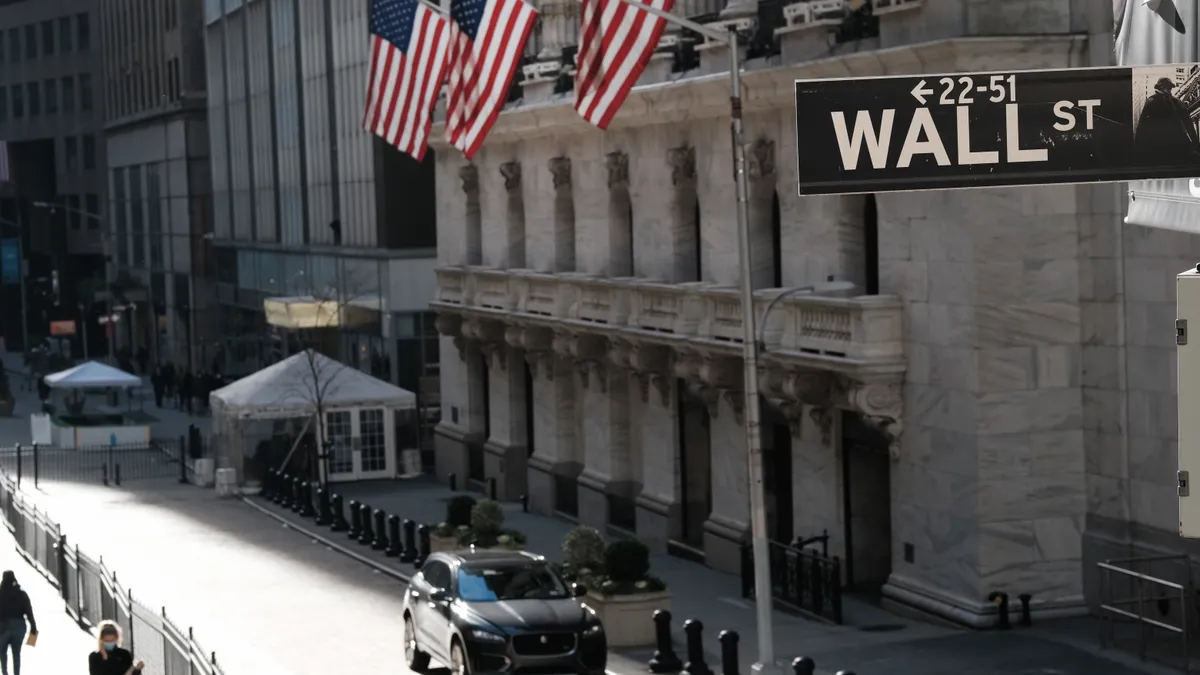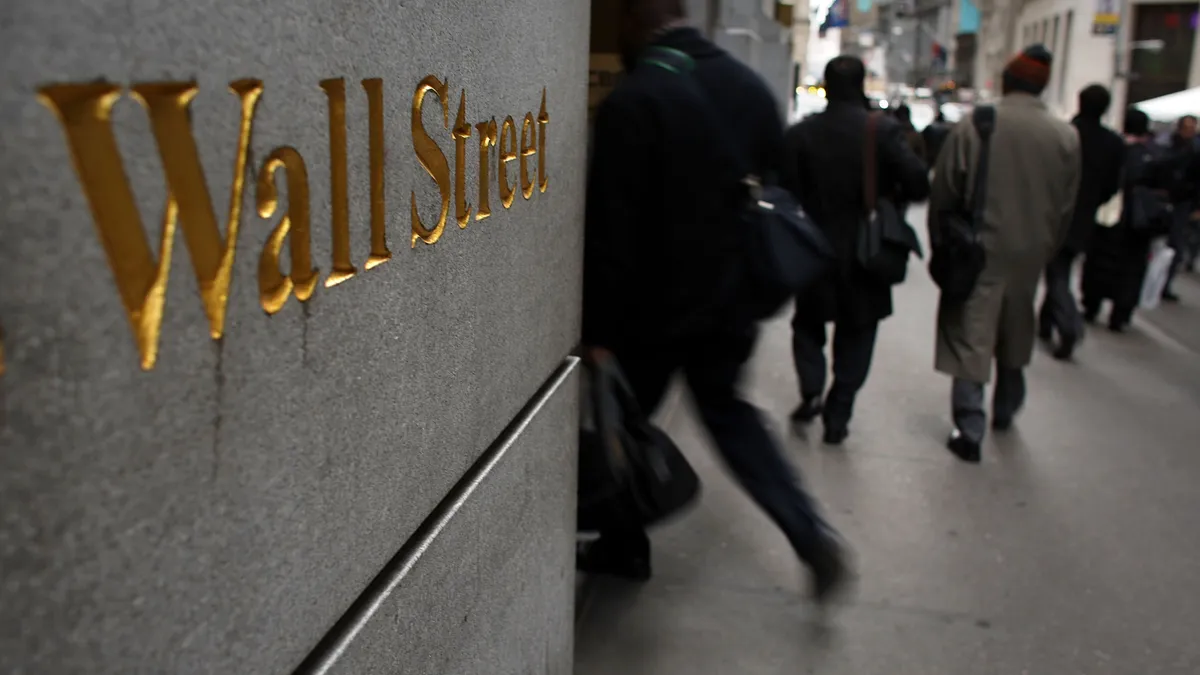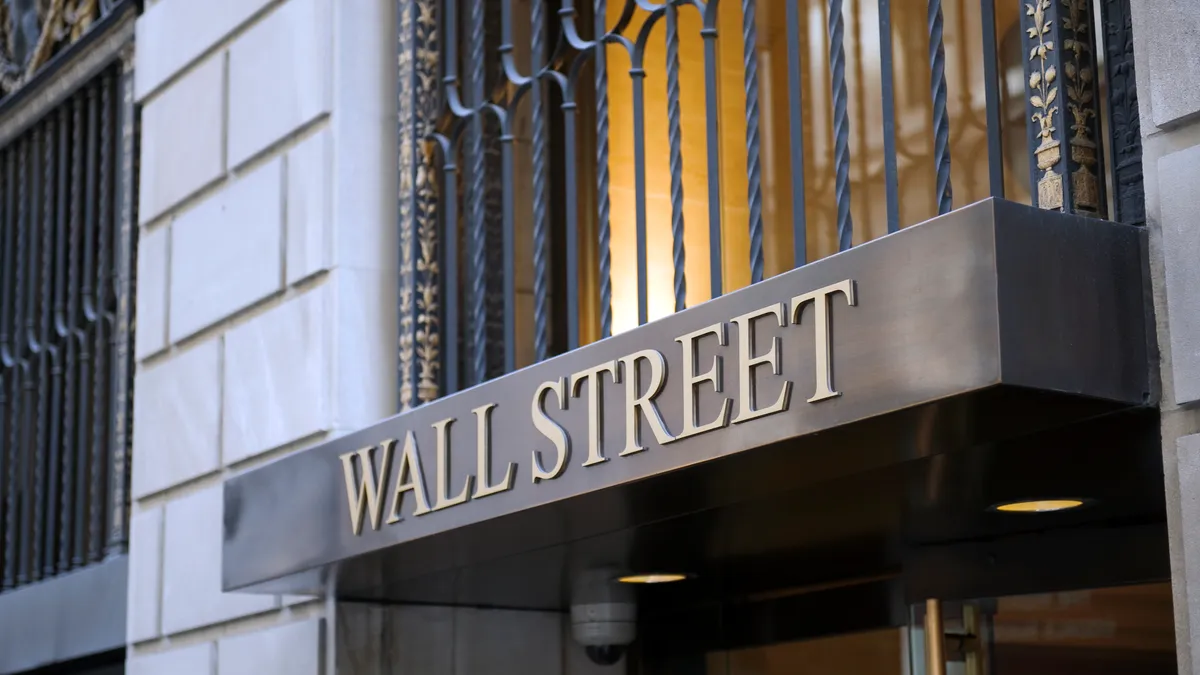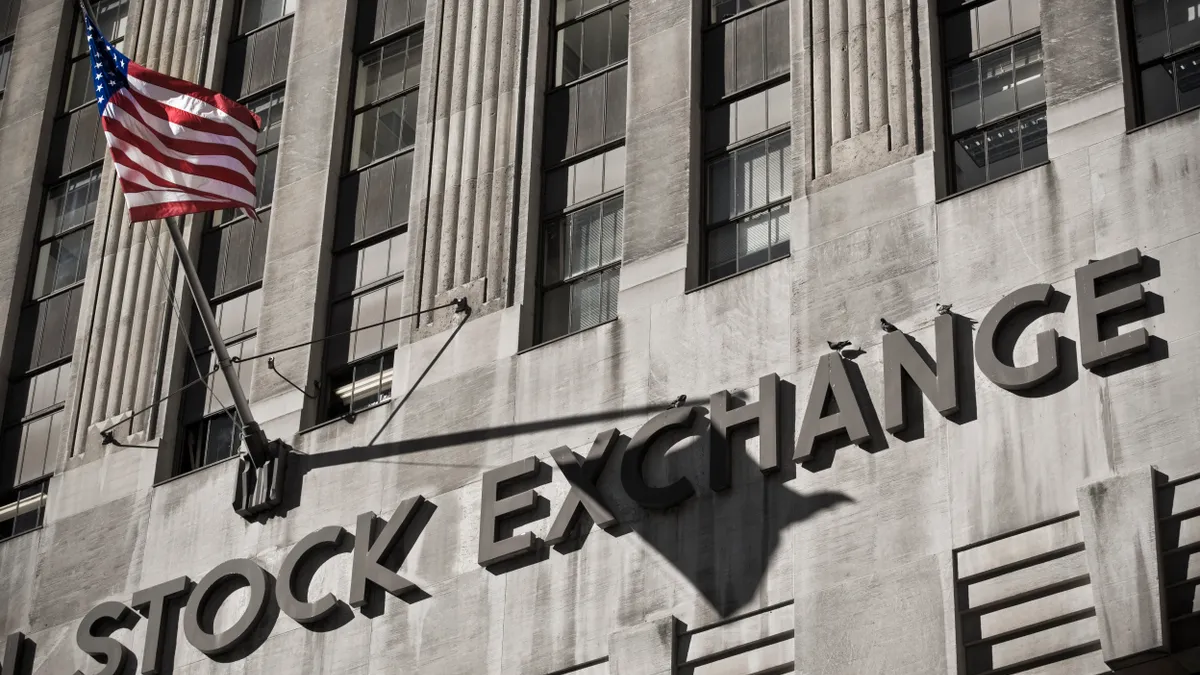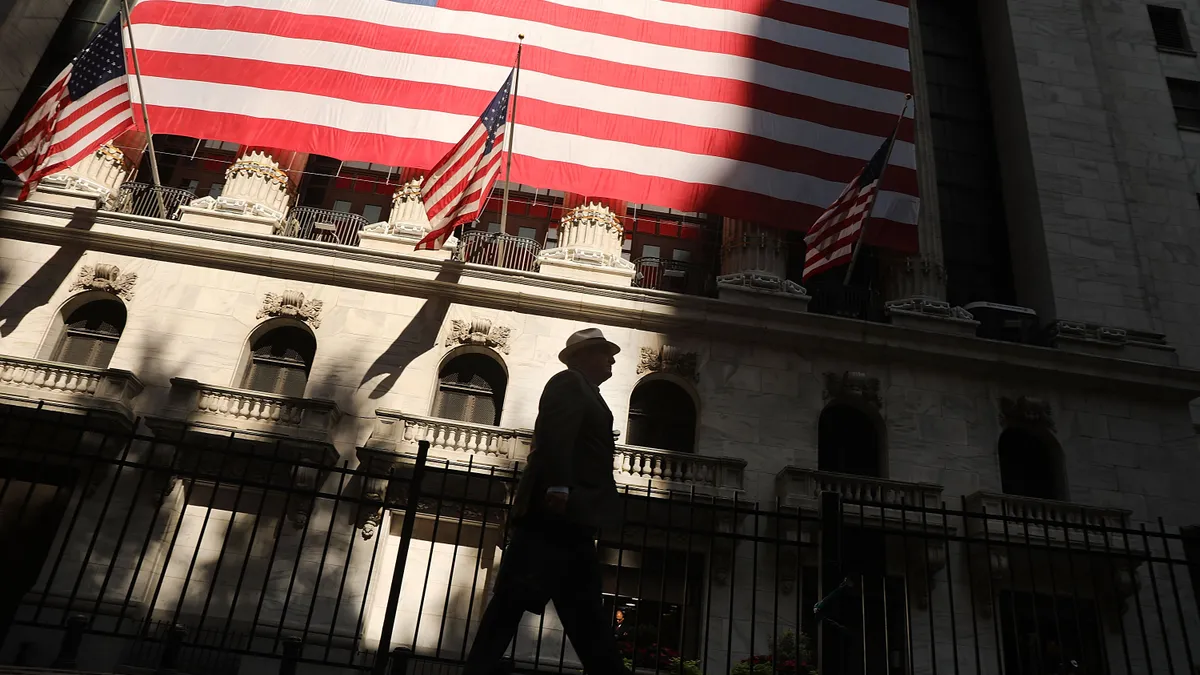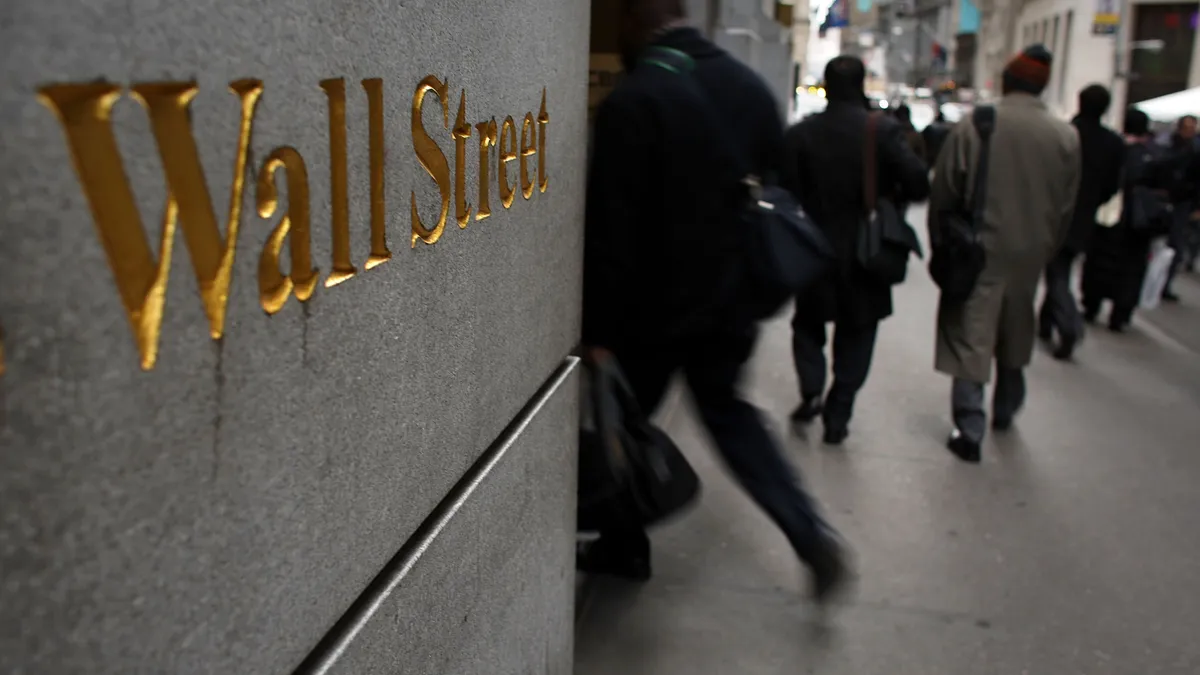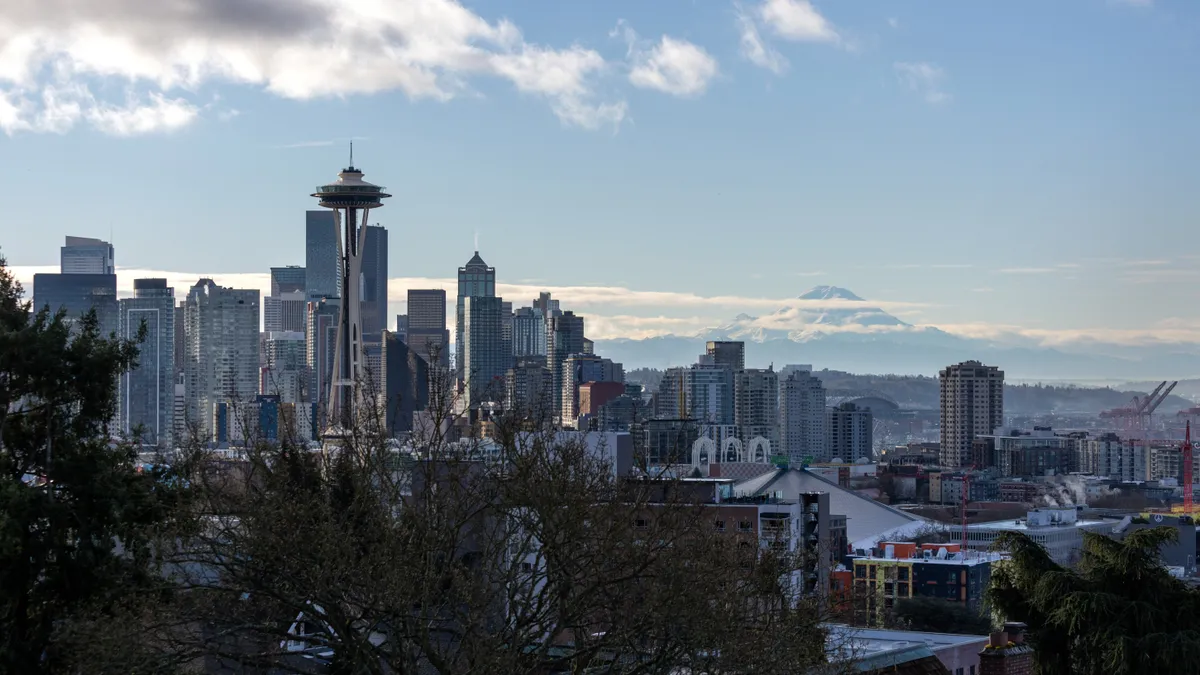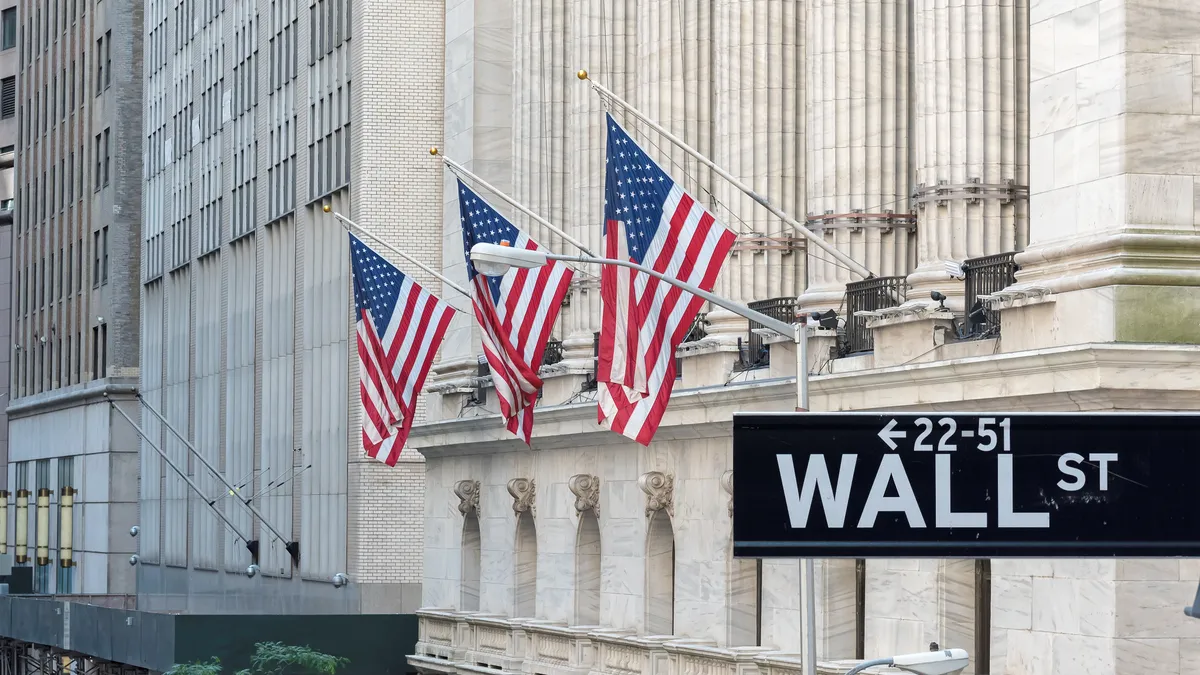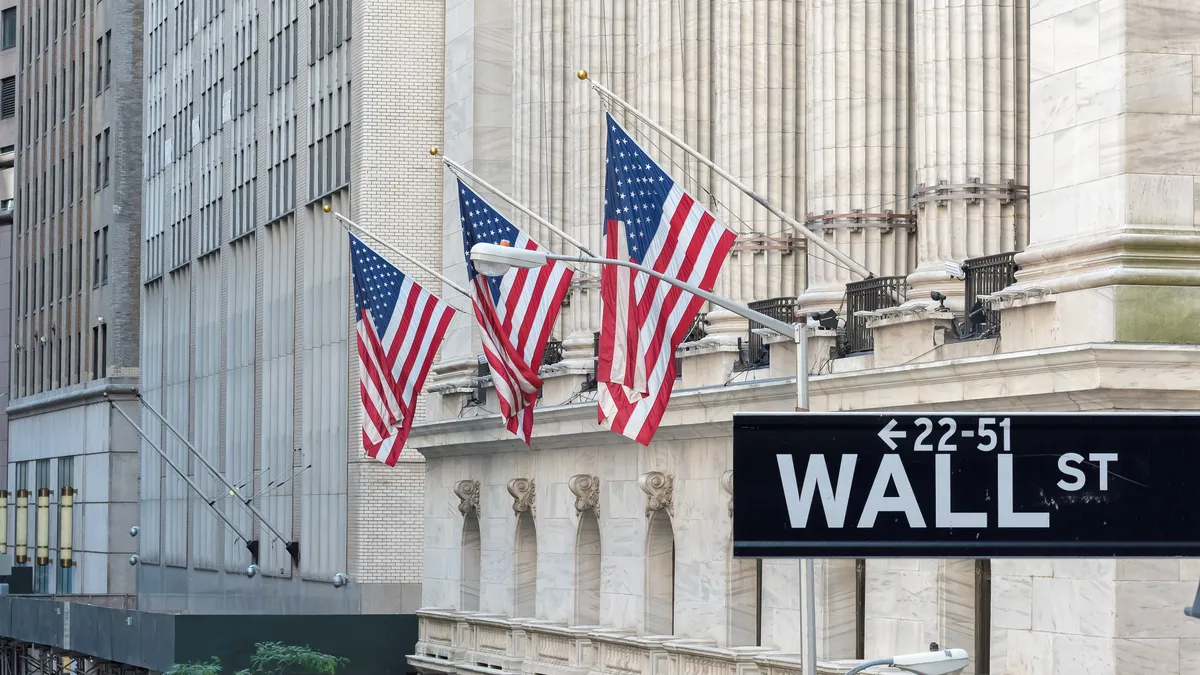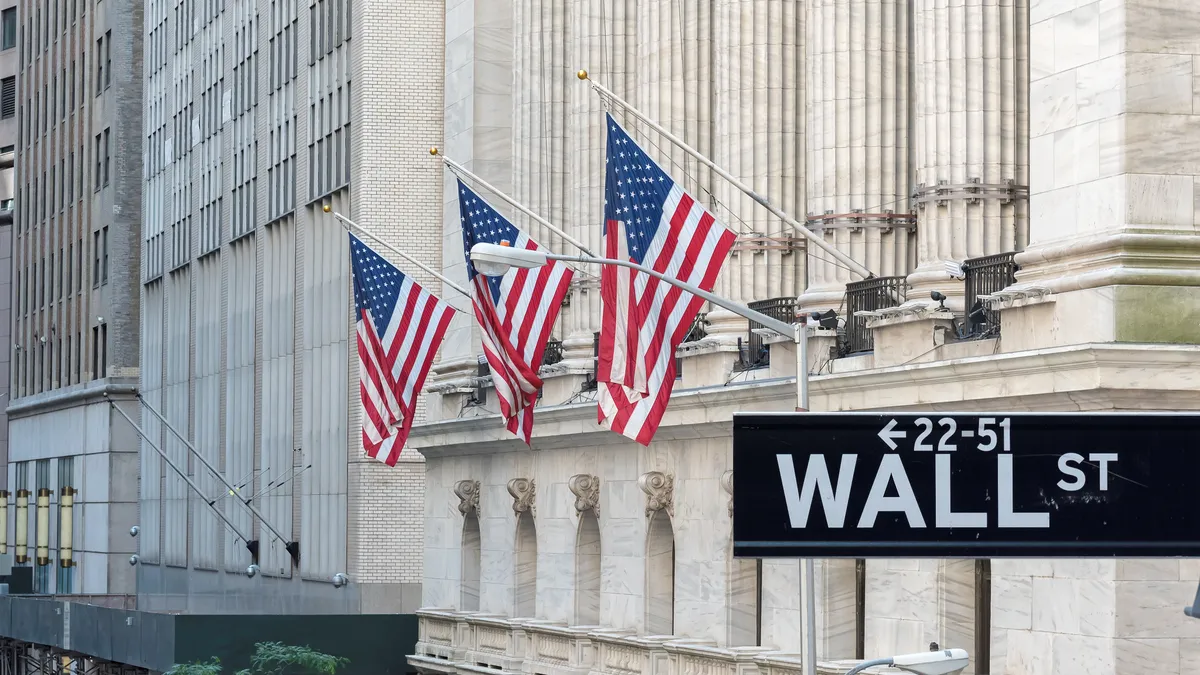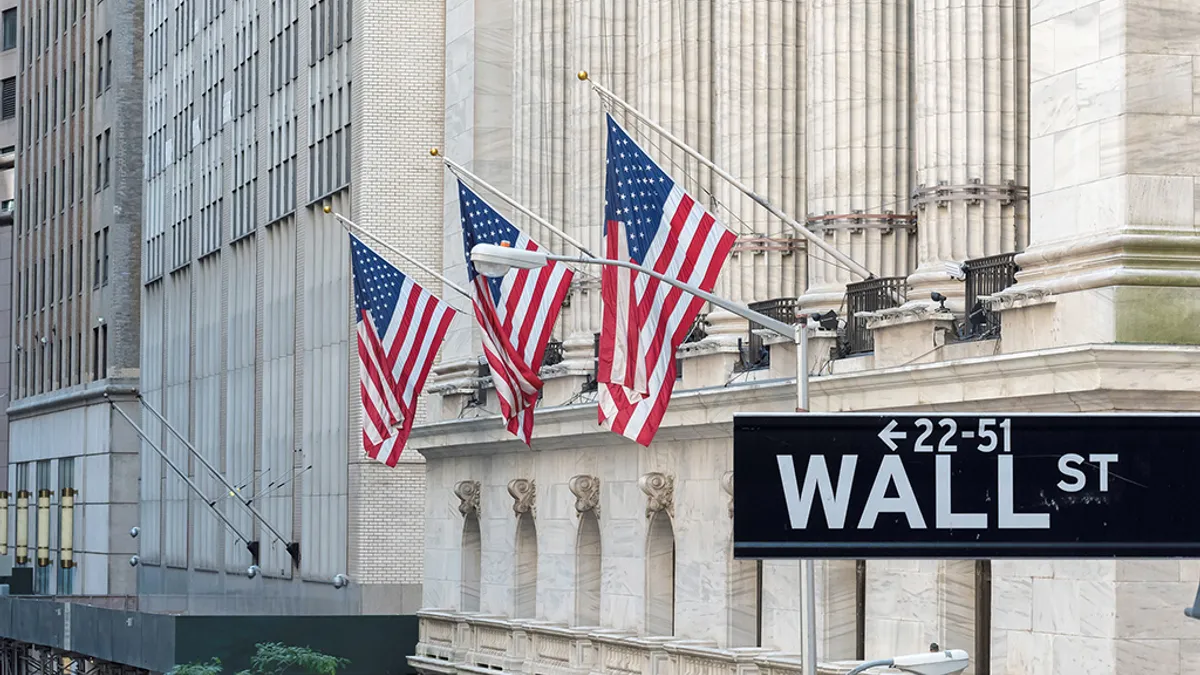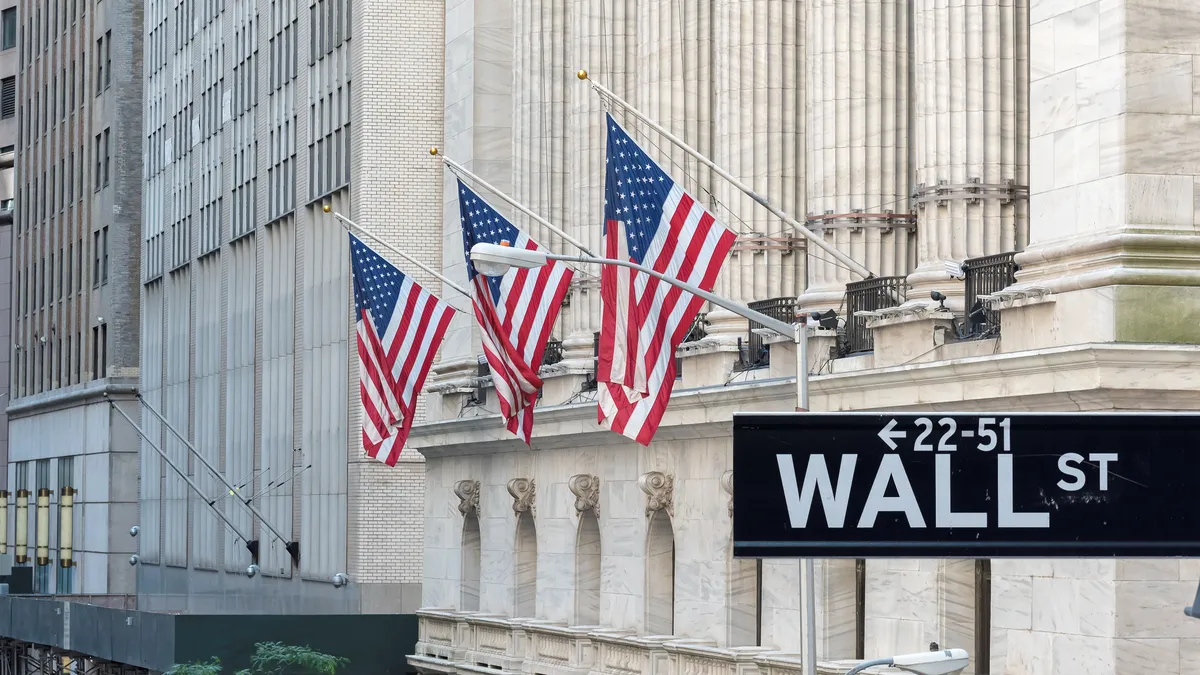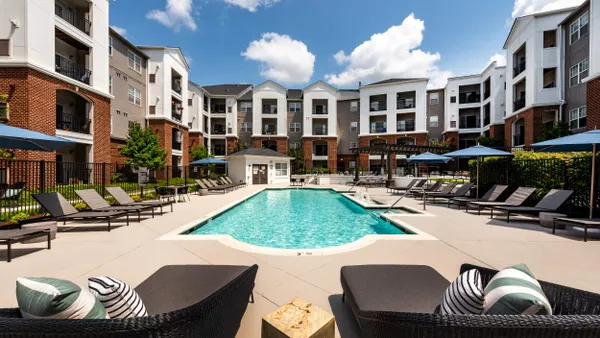Like the leaders at Chicago-based Equity Residential, the executives at AvalonBay Communities see 2024 as a tougher year than 2023.
“We were very pleased with our execution in 2023 and expect to continue to be relatively well positioned in a year of slower growth in 2024,” AVB CEO Ben Schall said on the REIT’s fourth quarter conference call last week.
Overall, the Arlington, Virginia-based company expects same-store revenue growth of 2.6% and net operating income growth of 1.25% in 2024. Last year, same-store revenue growth came in at 6.3%, and NOI increased by 6.2%.
AVB forecasts rent increases of roughly 2% in 2024 after hitting approximately 3.4% in 2023. “We are expecting a slowdown given the roughly 2.7 million jobs [nationwide] that were produced in 2023 as compared to the current expectation for 2024 being close to 700,000 [jobs],” according to AVB Chief Operating Officer Sean Breslin.
In the call, AVB’s management team also talked about other expectations for 2024. Here are three more takeaways from AVB’s earnings report and investor call.
Operating transformation
AVB has been rolling out its AvalonConnect technology, which includes high-speed internet; digital services that allow residents to pay rent, submit requests and reserve amenities on their phones; and access to package lockers.
In 2023, the initiative delivered $10 million of incremental annual NOI to the bottom line, which was $4 million or about 66% higher than anticipated.
“As I've noted in the past, the deployment of our AvalonConnect offering, which will ultimately enhance portfolio NOI by more than $30 million, will pressure expense growth during the deployment period,” Breslin said. “We expect to be fully deployed by the end of 2024, so the operating expense impact will diminish materially as we move into 2025.”
Centralization should also help AVB find efficiencies, according to Breslin. “We expect an incremental benefit from our shift to a new organizational model, which reflects neighborhood staffing supported by centralized teams,” he said.
Development continues
A construction slowdown is hitting apartment developers as they postpone projects or shelve them altogether. However, well-funded companies, including REITs like AVB, can still get their prized projects out of the ground.
BY THE NUMBERS
| Category | Q4 | YOY Change |
| Total revenue | $643.6 million | 4.5% |
| Net operating income | $440.8 million | 3.8% |
| Operating expenses | $195.9 million | 6.2% |
| Funds from operations | $2.63 | 2.3% |
| Average rent | $2,967 | 1.4% |
| Economic occupancy | 95.6% | -20 bps |
SOURCE: AvalonBay
AVB plans to break ground on seven new developments, representing $870 million of investment at a weighted average yield in the mid-6% range this year, according to chief investment officer Matt Birenbaum. “As it relates to the pace of development starts across the year, it is more back-half loaded,” he said.
As of Q4, the REIT also had four development communities in lease-up. Together they were delivering rents that were 8.4%, or $260 per month, above the REIT’s initial underwriting, which translates to a 20-basis-point increase in yield.
Market dynamics
As 2024 kicks off, AVB is seeing new lease increases in parts of its portfolio. On the East Coast, rents rose 2% in January, while they ticked up 50 basis points on the West Coast. But issues remain in Northern California, which has been weaker for the company recently, according to Schall.
“Northern California is still a long way to go,” Schall said. “We have… asking rents today that are down roughly 10% from pre-COVID peak levels. That's primarily driven by San Francisco being 12% or 13% below peak, which is a pretty significant number.”
In AVB’s expansion regions, which include Raleigh-Durham and Charlotte, North Carolina; Southeast Florida; Dallas and Austin, Texas; and Denver, new lease growth was essentially flat, according to Schall. Breslin said occupancy is weakening in the Sun Belt, which hurts the REIT’s ability to push rents.
“That [weaker occupancy] starts translating to much heavier discounting in terms of where people are marking their rents to try and occupy those units because some rent is better than none,” Breslin said. “That's what we've started to see in the last few months here, and we'd expect that to continue as you roll through 2024 as those leases expire.”
Click here to sign up to receive multifamily and apartment news like this article in your inbox every weekday.



